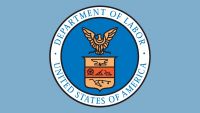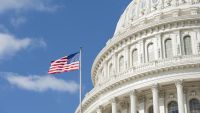November Is All Politics, 24/7
By Matthew B. Keelen, Michael J. Falencki

Accordingly, there will be changes in both the House and Senate, not the least of which will include addressing “tea party” and other candidates’ promises to reform “Obamacare” and earmarks; adjusting to a possible new House Speaker, which will most likely be House Minority Leader John Boehner (R-Ohio); and seeing a major turnover in many of the Senate committees.
Republicans, such as Sen. John Thune (R-S.D.) are hoping that a jump in Senate seats will lead to increased opportunity to provide favorable legislation for small businesses. Thune stated in an interview with POLITICO that he hopes to, “provide some predictability and some certainty to small-business owners that their taxes aren’t going up.” Alternatively, Democrats, who have been on damage control throughout the election cycle, have not presented as clear of an agenda for the 112th Congress. The House Speaker, Nancy Pelosi, has made vague promises, such as “keep moving the country forward.”
In the likelihood that Republicans pick up seats, a subsequent issue that will present itself is how the Obama administration will address these changes. As stated in a recent article in Roll Call, “One of Obama’s biggest hurdles may be that he has virtually no relationship with Senate Minority Leader Mitch McConnell (R-Ky.) and House Minority Leader John Boehner, the pair who will be leading his congressional opposition.”
Undoubtedly, a change in leadership and control of the House, and possibly a smaller Democratic majority in the Senate, will present an opportunity for Democrats and Republicans to come together. However, if the first two years of the Obama administration are indicative of what will come after mid-term elections, the President may continue to accommodate his far left supporters. Recently, he has continued to do this by supporting Majority Leader Harry Reid’s Dream Act, which, if passed, would have the effect of repealing the military’s “don’t ask, don’t tell” policy.
But before we get to the 112th Congress, the current Congress will reconvene after the election to address spending issues via an omnibus appropriations bill or another continuing resolution. Right now, government is funded through Dec. 3, 2010, and Congress will need to keep the government going beyond that date. Many insiders predict gridlock on most other issues, but that might not stop outgoing Members and their leadership from pushing through legislation.
For example, Speaker Pelosi commented after her speech to the Fortune Most Powerful Women Summit that partisan fights might subside after the elections, and that legislation important to women and children, including increased funding for child care and other social services, could be passed.
Obviously, major issues mentioned last month need to be resolved. But, if Congress cannot address issues outside of appropriations during the “lame-duck” session, then it will be incumbent on the 112th Congress to immediately focus on tax-cuts and other policy, perhaps retroactively applying those cuts to avoid raising taxes on small businesses.
Needless to say, everything between now and Election Day is all politics and campaigning. The lame-duck session could prove hectic, with many bills being forced through before the 111th Congress adjourns. Or, it could be very simple: Provide a continuing resolution to fund government, go home, and let the next Congress deal with it.
About the Authors
Matthew B. Keelen, founder and President of the government affairs firm The Keelen Group, is a widely known and highly regarded lobbyist and political strategist with experience building relationships with key figures and a reputation for consistently delivering hard-earned victories. Acknowledged for his innate ability to establish and develop long lasting political relationships, Keelen has dozens of time-tested relationships with Members of Congress, including many who are in positions of considerable influence today. To learn more about The Keelen Group, visit www.keelengroup.com.
Michael J. Falencki is the Chief Operating Officer and Vice President of policy for The Keelen Group, a government relations/lobbying, consulting and strategic services practice in Washington, D.C. Michael spent more than four years working on Capitol Hill and has spearheaded policy, legislative, and communications strategies for a host of clients, including the Mason Contractors Association of America, AT&T, The Society of the Plastics Industry and Archer Daniels Midland. To learn more about The Keelen Group, visit www.keelengroup.com.


















